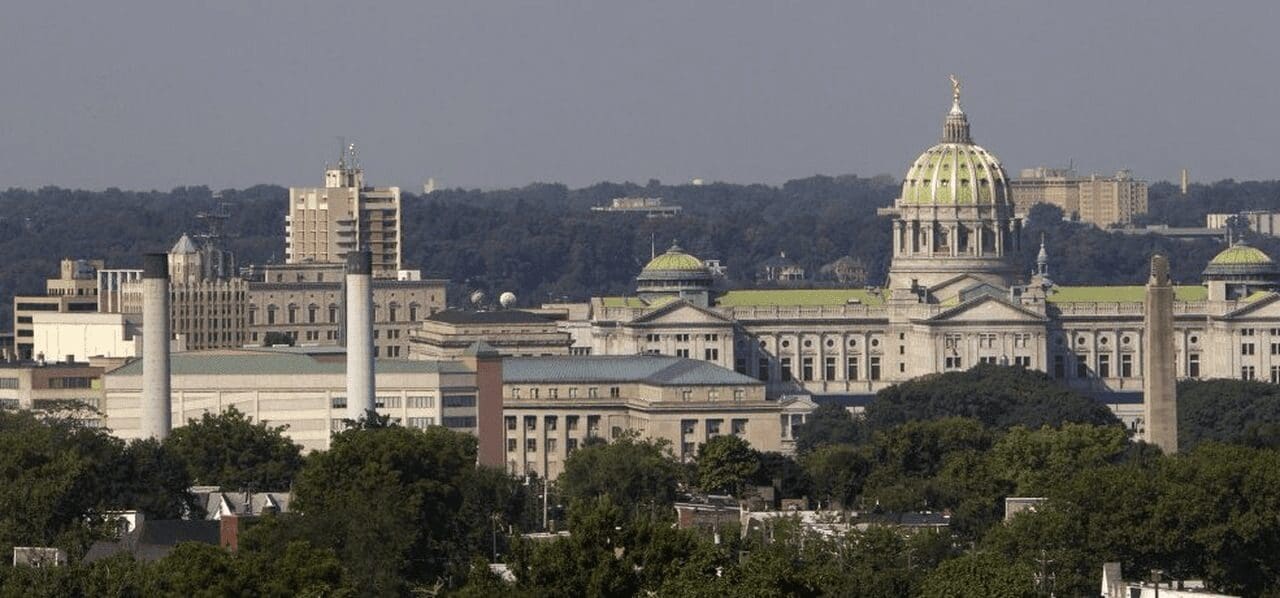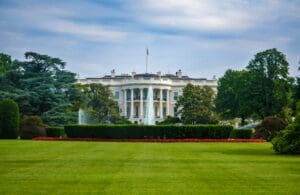Concentrated poverty is one of Harrisburg’s biggest problems. Will UBI help? The mayor wants to give it a shot.
By: Charles Thompson | cthompson@pennlive.com
Harrisburg Mayor Eric Papenfuse, with the help of a mighty $48.8 million breeze blowing in from Washington, D.C., is calling for the establishment of a guaranteed income program in Harrisburg to help the city’s poorest residents and attack generational poverty.
Papenfuse says the plan, which is little more than a campaign pledge in the midst of a hotly contested primary at the moment, but one he expects to develop into a proposal for City Council’s consideration later this spring, would send monthly payments for up to two years to residents living below yet-to-be-determined income-eligibility thresholds.
Papenfuse’s Democratic primary rivals, meanwhile, are leaning in different directions for the federal funds. Otto Banks and Dave Schankweiler say the city could get more bang for the buck by investing in housing, job readiness programs and small business assistance programs. City Council President Wanda Williams prioritized infrastructure investment.
A U.S. Treasury spokeswoman told PennLive Wednesday that program guidelines for spending the American Rescue Plan money are still being finalized, so she could not say whether they will allow such a guaranteed income program.
Papenfuse, however, is banking on broad guardrails issued upon passage of the legislation last month that said the funds can be used to support “economic assistance to households, small businesses and non-profits, or industries that were particularly hard hit by the pandemic.” If the proposal meets all federal tests, it would also likely require City Council’s approval.
Papenfuse’s plan, which he has mentioned in several candidate forums this spring, is a spawn of the universal basic income concept that has progressive Democrats have grown to favor in the last several years. It got a publicity boost from Democratic presidential candidate Andrew Yang during last year’s primary campaigns.
(Yang, in his current campaign for mayor of New York, has proposed paying the 500,000 neediest New Yorkers about $2,000 per year.)
It’s also seen by proponents as something that’s much more of a reality now by after the successes of the broad-scale federal stimulus payments — supported by both the Trump and Biden administrations — in helping to limit the economic pain from the pandemic shutdown of whole segments of the American economy.
The concept of a basic income is being explored in more than 40 cities nationally, with more than a dozen pursuing smaller, pilot programs, according to The Washington Post. For example, the mayor and city council in St. Paul, Minn. agreed last September to guarantee $500 in monthly income to 150 low-income families affected by COVID-19.
Papenfuse is talking about a program that would reach many more households.
“It could allow for repeat, sustainable payments to those families in Harrisburg that are at or below the poverty line; as much as a thousand dollars extra per month for a period of two years,” Papenfuse said at a recent candidates forum. “It’s an extraordinary opportunity… and those funds can absolutely transform the city, and eradicate poverty.”
The breadth of any program here would ultimately depend on how much money city leaders decide to invest.
According to the United Way of Pennsylvania, 24 percent of Harrisburg’s 20,520 households had incomes below the federal poverty threshold in 2018. That’s 4,925 different family units.
If the city was to use the entire $24,430,000 allocation for this year for a basic income program, simple math suggests they would receive an average of about $4,960 per household, or about $413 per month. The actual plan would likely scale that up or down for each individual family, based on household size and, other qualifying factors.
With the federal dollars coming in equal payments this year and in 2022, Papenfuse sees the ability to make the payments – which would layer on top of all other existing benefit programs – for at least two years, and maybe longer.
Cities have until the end of 2024 to spend down the new federal funds.
Papenfuse said he began thinking about trying a guaranteed income program in Harrisburg upon learning how much federal money is coming to Harrisburg from the American Rescue Plan.
“The city has never received anything remotely like this amount in a direct allocation,” he said. “We can go a long way toward making a real impact in peoples’ lives, and now we have a real funding source for it.”
Early returns from guaranteed income programs in other areas have shown some promise.
In one recently-completed pilot in Stockton, Calif., 125 low-income households received $500 per month for two years, starting in February 2019.
Researchers tracking Stockton’s results found full-time employment increased among program recipients — from 28 percent at the outset to 40 percent after one full year — because they could reduce the number of part-time shifts or gig work in order to apply for stronger positions. Others reported being able to complete internships, training, or coursework that lead to full-time employment or promotions.
Many recipients also reported improvements in their mental and emotional health.
But critics of these plans say they fear that guaranteed income will — for some people — discourage participation in the workforce and turn the traditional American model of rewarding work upside down.
They also argue that, because of the inherent costs of these program, the benefits are too small and too temporary to make a real difference for many people, and if they were more targeted to increase the scale of the payment, then the government is in the business of arbitrarily picking winners and losers.
Papenfuse’s rivals for the Democratic Party nomination for mayor do not, at the moment, seem to share his enthusiasm for such a plan.
Former Harrisburg city council member and George W. Bush-era Housing & Urban Development official Otto V. Banks said his top priority for the federal funds would be to stabilize households and businesses through rental assistance, small business relief grants and even some type of help for homeowners who might be having a hard time making mortgage payments.
In an email, he also wrote about creating a new funding stream for non-profits to allow them to expand services and staffing in areas like child care, work readiness support, and “other services that can help families navigate with a more holistic approach through this pandemic.”
Banks doesn’t completely rule out some form of direct cash assistance, but talked about a much more limited approach aimed at specific groups, such as single-parent households.
He also said it’s simplistic for Papenfuse to think such payments will be some kind of magic bullet to eradicate poverty in the city.
“There were pre-existing conditions, such as food deserts, access to healthcare facilities, disparities within healthcare in terms of continuity of care, inability to access mental health coverage, homelessness, etc. that a simple basic income program cannot solve,” Banks said. “If that were the case, cash assistance, an already existing structure in impoverished areas, would have prevented these disparities from elevating during a pandemic.”
In the end, Banks said, he’d rely heavily on city council and community input to develop a budget for the federal money that lifts the entire city.
“This funding is about rescuing everyone in the city, from the essential workers to vulnerable populations, and everyone should feel this funding has done something to help them in their efforts to remain safe and secure during this time,” Banks said.
David Schankweiler, the retired CEO of Journal Publications, said he would rather see the money dedicated to programs that will benefit all city residents, or used to provide a longer-term tangible benefit to specific families rather than a temporary — and he feels — ultimately unsustainable government check.
As an example, Schankweiler said, he’d rather see a portion of the federal funds devoted to major home repairs — such as new roofs, sidewalks or furnaces — for senior citizens who can’t afford such big-ticket repairs but might not be able to stay in their homes without them. Schankweiler says the city is filled with homeowners in that plight.
“You could set up assistance to help some of these houses that are falling apart, yet the residents want to stay there — especially our senior residents; but we’ve got leaking roofs and electrical problems and that kind of thing. I think those dollars could help our residents better that way, and then we have something to show for it with improved housing stock in our neighborhoods,” Schankweiler said.
He also talked about programs to support small businesses, building out better wifi service, job training efforts or youth programming.
“It’s a good sound byte,” Schankweiler said of Papenfuse’s concept. “But the dollars could go further to bring our neighborhoods back by doing some pretty basic things so that when all the money’s gone, we’re a better city for it and our residents are better for it. I think there’s a better way to make a bigger reach for more citizens.”
City Council President Wanda Williams and candidate Kevyn Knox did not respond to questions on the issue.
Williams, however, told a candidate forum this week she’d give top priority to using the federal money for major, city-wide public works projects, such as federally-required improvements to Harrisburg’s sewerage system or city-wide road and street repairs, both of which have the opportunity to relieve residents of a major cost burden.
Early legislative summaries of the bill have said the American Rescue Plan funds can be used for:
- Economic assistance to households, small businesses and non-profits, or industries that were particularly hard hit by the pandemic.
- Premium pay to essential workers.
- To replace holes in municipal budgets caused by drops in tax collections due to the pandemic, to help prevent layoffs or the curtailment of any regular city services.
- Investments in infrastructure such as water, sewerage and broadband.
The language explicitly prohibits funds from being deposited into a pension fund.
There is no doubt that concentrated poverty is one of Harrisburg’s biggest problems. The median household income for Harrisburg residents in 2019 is listed by the U.S. Census Bureau at $39,685. That’s about 65 cents on the dollar to median income for all of Dauphin County, which is $60,715.




















